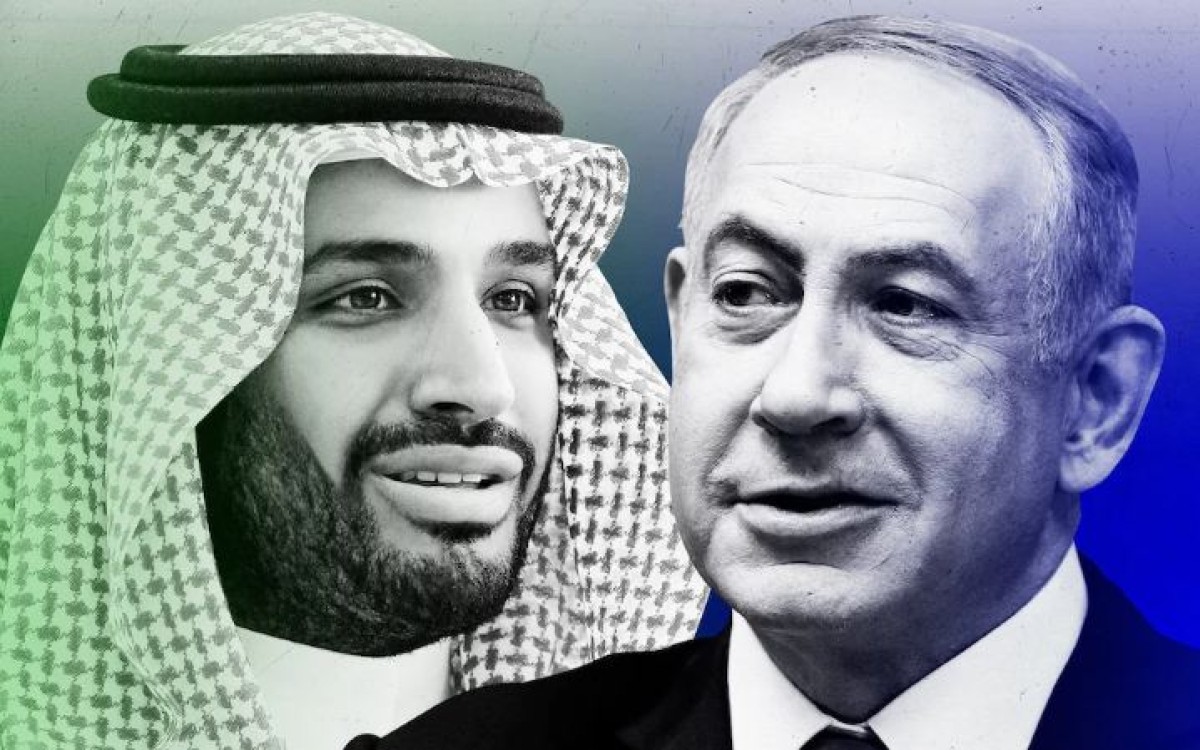 207
207
The Kingdom Saudi Arabia's approach on the Palestinian question has a long history of duplicity and political opportunism. Despite statements of sympathy for the Palestinian people, Saudi Arabia has never condemned the Zionist occupation or the horrors perpetrated against the Palestinians. In fact, the Saudis have maintained their relationship with Israel through covert diplomacy, enabling both sides to further their mutual interests.
Since the phoney Israeli state’s foundation in 1948, despite occasional criticism of Tel Aviv, Saudi Arabia has done nothing to stop Israel’s murderous occupation. Rather, Riyadh has bet on diplomatic mediation, which has yielded zero political achievements amid the Palestinians’ enduring plight. Political scholars concur that Saudi Arabia’s strategic bond with the United States is the primary reason for the Saudi leaders’ hypocritical stance.
Perhaps the single most significant attempt put out by Saudi Arabia to settle the Palestinian conundrum is the Arab Peace Plan, which was first introduced in 2003 by then-Saudi Crown Prince Abdullah bin Abdulaziz. This initiative offered full normalisation of ties between the Arab nations and the Israeli regime in exchange for the Zionist regime’s withdrawal from the 1967 occupied territories and the recognition of the sovereignty of a Palestinian state with East Jerusalem as its capital, in addition to a “fair solution” to the question of Palestinian refugees. Later, at the Khartoum Summit, all members of the Arab League voted in favour of the proposal, which opened the door for unanimous recognition of the phoney Israeli regime and effectively ended decades of the Arab boycott. Nonetheless, the Zionist regime has rejected the initiative because its main objective is to block the establishment of an independent Palestinian state in the West Bank and Gaza Strip.
Israel’s relations with the United Arab Emirates, Bahrain, Morocco, and Sudan were normalised under Donald Trump’s administration. The relationship between Saudi Arabia and Israel has also been in the spotlight since Trump entered the Oval Office. Saudi Arabia has adopted contradictory and ambiguous stances on critical topics like the political status of Bayt al-Muqaddas [Jerusalem] and Trump’s “Deal of the Century.” Saudi Arabia has adopted a vague approach regarding recognition of the Zionist regime by several Arab countries in the Abraham Accords. The Saudis have repeatedly announced that the Palestinian crisis must be resolved and the “two-state solution” implemented prior to the Kingdom’s formal recognition of Israel.
Nevertheless, following the Abraham Accords, observers believe that things are heading towards “economic normalisation” between Saudi Arabia and the Zionist regime. Israeli businessmen allegedly visited Saudi Arabia to explore economic prospects after receiving special visas.
Reports say that since Riyadh lifted its ban on Israelis entering the country, the Saudis have invited Israeli tech companies to make investments in the kingdom. The alleged November 2020 visit of then-Israeli Prime Minister Benjamin Netanyahu to Neom, a smart city built in northern Saudi Arabia, also indicates that some inside the kingdom want an open role for the Zionist regime in their country’s 2030 Vision. However, the denial of this meeting by the Saudi Foreign Minister demonstrates how sensitive things are still for the Saudi leadership.
In recent weeks, after Netanyahu’s re-election, Saudi authorities and Israeli officials have discussed the normalisation of relations between Riyadh and Tel Aviv, and even Hebrew-language media have revealed the secret conditions of Mohammed bin Salman, the Saudi Crown Prince and the Kingdom’s de facto ruler, for a possible compromise with Israel.
What is clear, however, is that Mohammed bin Salman still cannot strike a compromise with the Zionists, whether because of internal considerations, fear of the Muslim world’s backlash, or any other security challenges.
In the long run, Saudi-Israeli relations would probably witness a normalisation. This scenario will not contribute in any way to the stability and security of the Arab world; rather, it will exacerbate Arab-Arab feuds. In addition, regional rivalries will escalate in the Middle East, threatening peace in the already restive region.
Comment
Post a comment for this article